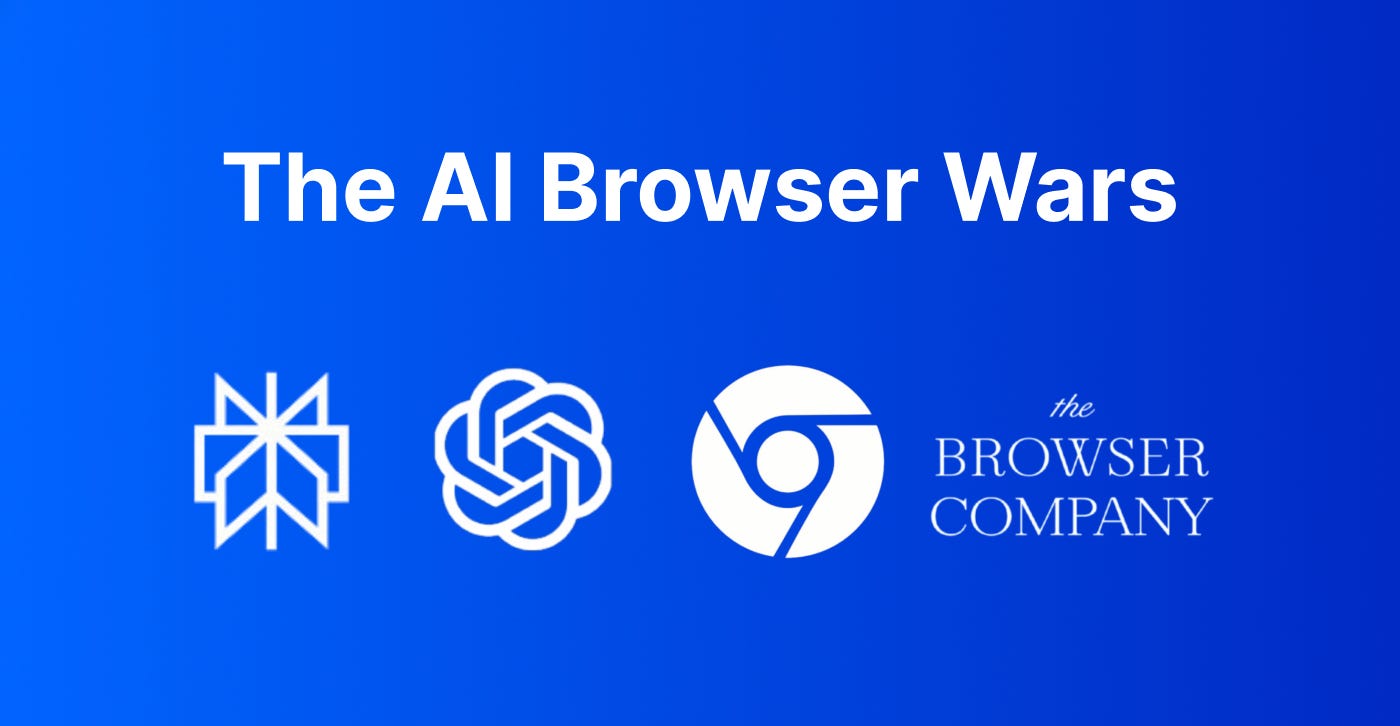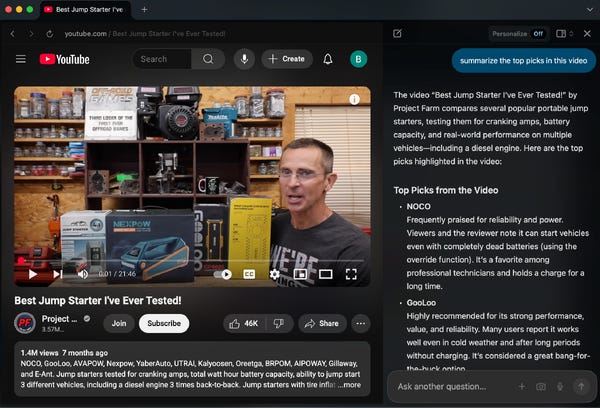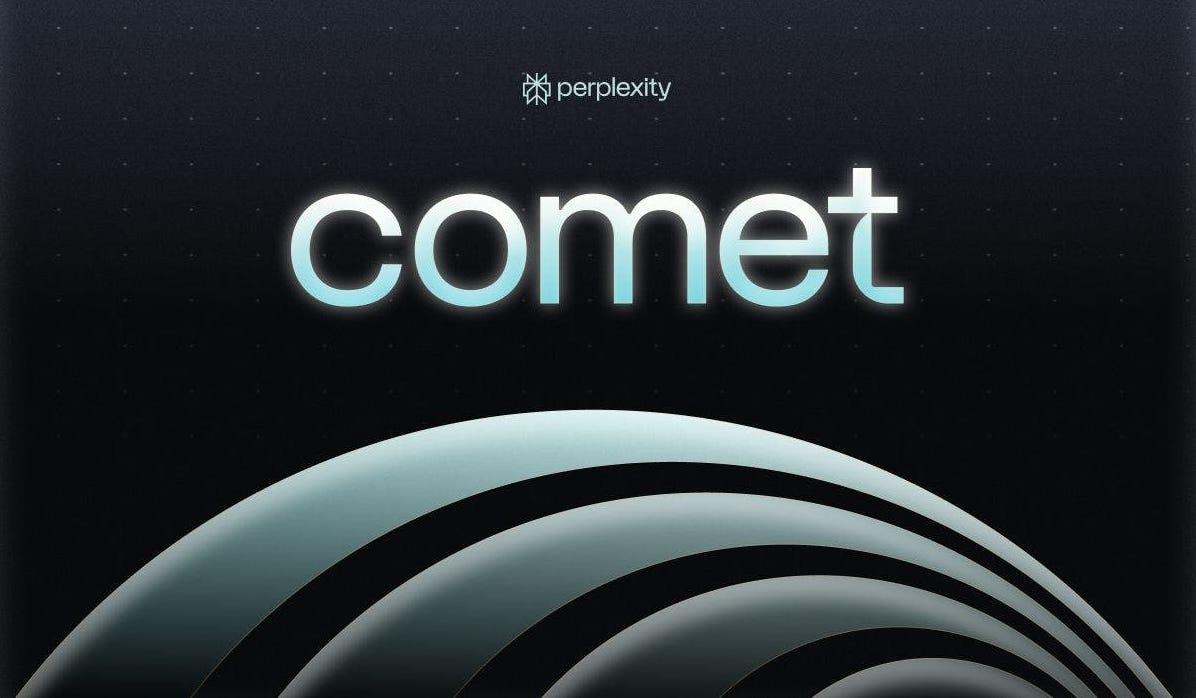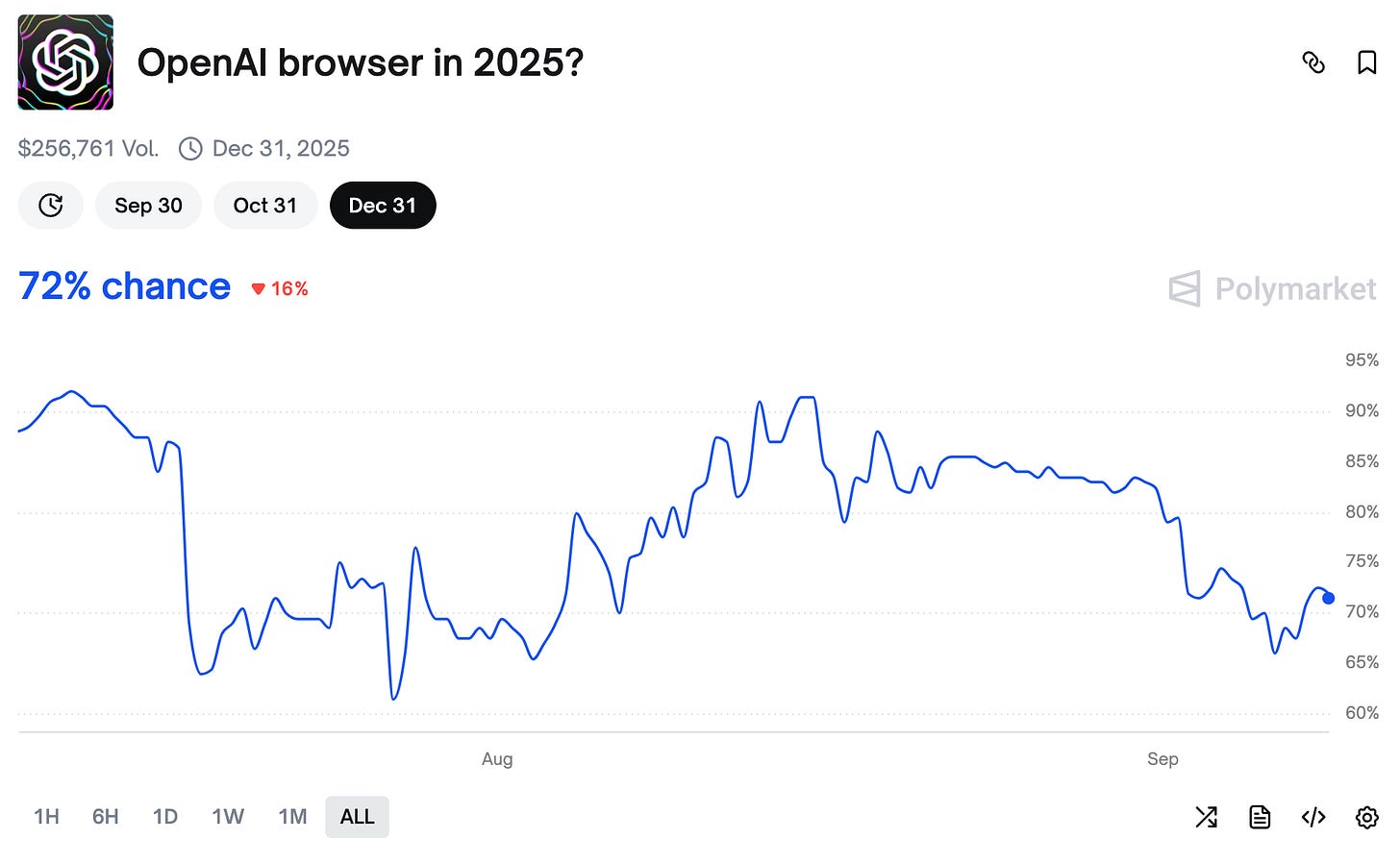The AI Browser Wars Are Here
Why the browser matters and the state of the AI browser landscape
I’m Tanay Jaipuria, a partner at Wing and this is a weekly newsletter about the business of the technology industry. To receive Tanay’s Newsletter in your inbox, subscribe here for free:
Hi friends,
A lot is happening in AI browser land, so let’s talk about it. Just this past week, Atlassian agreed to buy The Browser Company, the makers of Arc and Dia for $610M in cash and a federal judge declined to force Google to sell Chrome, which keeps the incumbent’s distribution power intact. Perplexity continues to roll out Comet more broadly. OpenAI is widely reported to be prepping a browser of its own.
Let’s jump in and discuss:
Why the browser matters
Who the major AI browser contenders are
Why the browser matters for AI
I expect the browser to be an interesting battleground going forward for the following reasons.
1. Distribution surface: Default slots in browsers are worth billions. Google paid Apple about $20B in 2022 to be Safari’s default search on iOS, and spent $26.3B in 2021 across devices and platforms to secure default status. A recent ruling lets Google keep paying partners for defaults, which preserves that distribution engine. Mozilla’s finances also show how powerful this channel is, with a large majority of revenue tied to its Google search deal. Search was the original beneficiary of these defaults, and chat assistants are now stepping into the same front door.
2. Place where agents happen: The browser already sits where work happens, so it is a natural potential control plane for agents. You can grant page context, watch steps, and take over when needed. That is why new products position the browser as an agent desk. Perplexity’s Comet launched as an agentic browser that researches and acts from the page. The Browser Company’s Dia makes it easy to use AI skills and assistants using the context of a webpage. Together, these moves show agents gravitating to the browser surface first, particularly as human in the loop happens. The fact that the browser also holds identity, cookies and app state across various apps and tools people use also further helps further this idea.
The AI Browser Wars Contenders
While still relatively early, and I expect all the key browsers such as Firefox, Edge, Safari, Brave to add AI features, I figured it’s worth touching on the dominant browser today, as well as the key AI-native browsers.
Google Chrome
Chrome is the dominant browser today with almost 70% market share, and as the recent Google antritrust ruling asserted does not need to be divested by Google.
We’ve already seen a few AI features added in Chrome over the last year or so, and as the company continues its focus on AI, I expect to see more. So far, they’ve shipped things like features to organize tabs and help people write and summarize content on a page. Over time, there may be page-grounded actions across multiple tabs.
Google’s goal with Chrome is likely to funnel and leverage Chrome’s distribution to continue to maintain Google and its AI products as the defaults for most users as well as to continue to collect more data around users that can be helpful to improve and personalize Google’s products.
Given that many AI features can be quite expensive, particularly as you move into agentic features, I do wonder if Chrome's massive scale ends up being a limiter to the amount they can push with AI functionality in the browser in the absence of requiring subscriptions to Gemini or similar.
Dia
Dia was built by the team over at The Browser Company of New York, who also built Arc, and was acquired by The Issue Tracking Company of Australia (Atlassian) for about $610 million in cash last week. The Dia browser itself only launched in June of 2025, barely 3 months ago, and was the team’s take on an AI-native browser, which combined their learnings from Arc with what’s possible with AI.
On AI features, Dia already lets you chat with pages and YouTube videos, run reusable Skills, use all your browsing history as context and personalization for chats and more. The vision going forward is to make the browser more useful for work across the myriad of tools people use, including of course Atlassian’s own tools.
“Today’s browsers weren’t built for work; they were built for browsing. This deal is a bold step forward in reimagining the browser for knowledge work in the AI era. Together, we’ll create an AI-powered browser optimized for the many SaaS applications living in tabs – one that knowledge workers will love to use every day” - Mike Cannon-Brookes, Atlassian’s CEO and co-founder.
Going forward, I expect to see more agentic features that allow users to prompt taking actions directly from webpages or their browser, particularly in a work context.
If you don’t yet receive Tanay's newsletter in your email inbox, please join the 10,000+ subscribers who do:
Perplexity’s Comet
Perplexity launched Comet on July 9, 2025, positioning it as an agentic browser that researches, summarizes, and then acts on the page. It is a natural extension of Perplexity’s retrieval strength, which makes answers feel fast and grounded. Distribution has ramped quickly through a broad public launch and partner promotions, and Comet has the most advanced set of agentic features and functionality of browsers today.
On AI features, Comet blends page awareness with suggested next actions and can already reach into basics like email and calendar when you grant permission. The promise is that you can ask a question, follow links, and complete simple steps without context resets. What comes next is breadth. Shopping, scheduling, and forms are obvious surfaces, along with longer task chains that need retries and recovery without losing the thread, which will take models to improve as well.
From Perplexity’s point of view, it’s likely they view the browser similar to Google Chrome - as a way of increasing Perplexity subscription adoption as well as Perplexity usage by being the default for Comet users. Interestingly, I know of some people subscribing to Perplexity’s max plan specifically for the browser itself, given how useful the still early agentic functionality can be. It will be interesting to see if it remains a distribution channel to core Perplexity or if it becomes an independent product of its own that people pay for.
OpenAI
OpenAI’s browser is not out yet, but multiple reports say it is in the works, with the internal name Aura surfacing in code per a piece in June of this year. The expected shape is a tight coupling between ChatGPT for intent capture and Operator/ChatGPT agent for tooling/an agent that can act with clear prompts and consent.
Prediction markets currently estimate a 70% chance we see the browser this year. Whenever it does come, it will be interesting to see whether given ChatGPT’s runaway lead as the AI assistant of choice for most users with over 700M MAU, they can translate that into browser downloads and usage as a way to continue to deepen their relationship with their users and increase engagement with their core product.
Closing Thoughts
The browser matters because distribution still sets the table and because the tab is a natural place for agents to work alongside us. Chrome remains the default gravity well and is layering in AI features inside the browser. Dia feels like the most AI-native take on a work browser and now has Atlassian’s distribution and product surface to grow into real workflows. Comet is the most agentic today for research and quick tasks, and it is pushing the action model forward in public. OpenAI is the wildcard. If it ships a browser that cleanly hands off from chat to page actions, it could convert it’s large ChatGPT user base into a new OS for personal or professional work.
One final thought on share and switching. Chrome’s scale means even small shifts create room for meaningful new businesses. AI feels like a large enough wedge to change habits and perhaps encourage many people to consider switching their browser, which they likely haven’t changed in a decade.



![OC] Global Browser Market Share over the past 15 years : r/dataisbeautiful OC] Global Browser Market Share over the past 15 years : r/dataisbeautiful](https://substackcdn.com/image/fetch/$s_!0L15!,w_1456,c_limit,f_auto,q_auto:good,fl_progressive:steep/https%3A%2F%2Fsubstack-post-media.s3.amazonaws.com%2Fpublic%2Fimages%2F7940586f-9268-4f94-a890-b36684df0399_1024x768.png)



Is Perplexity Comet worth trying out?
Great take! I recently wrote about this too, especially the AI agent workplace angle that I think is the real game-changer